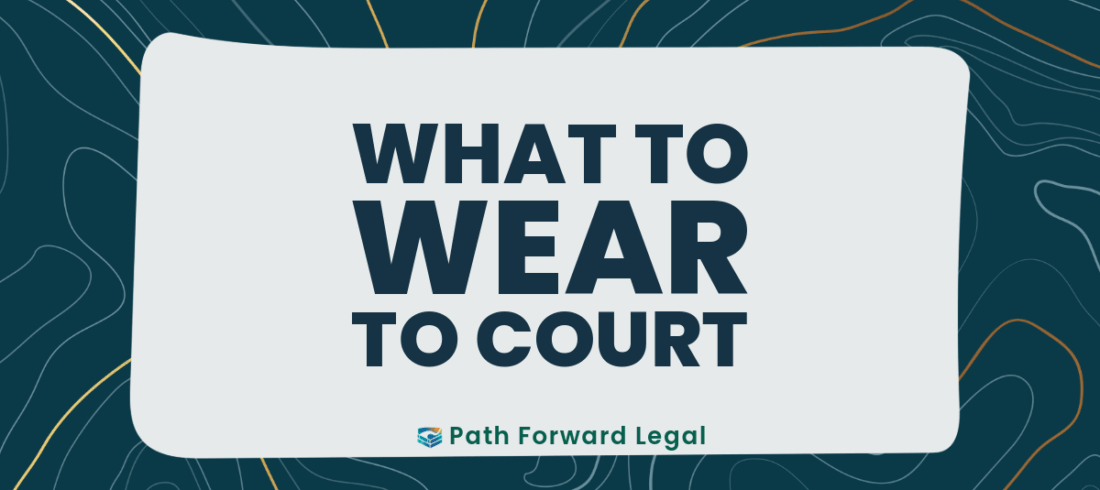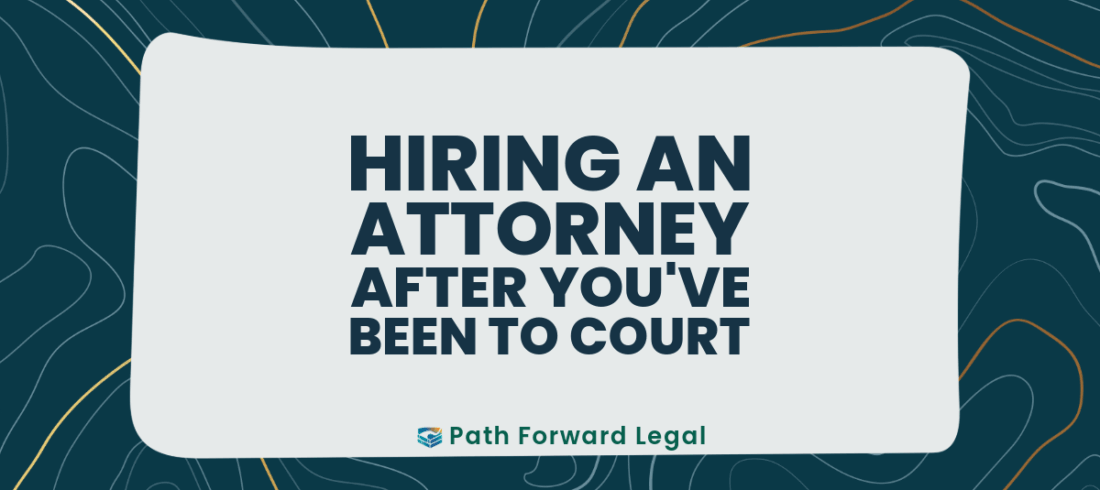Introduction
Navigating the criminal justice system can be scary and confusing, especially if you’re facing charges and are currently out on bond. There’s a lot that the court assumes you already know, both things you are prohibited from doing and things that you are required to do. It’s important to understand your rights, responsibilities, and the potential consequences if the conditions of your bond are breached.
In this guide, we’ll explain what being out on bond means. We’ll talk about the rules you have to follow and what could happen if you break them. We’ll also share some tips for getting ready for court and how to avoid common mistakes.
Remember that every situation is unique and requires personalized legal advice. However, this primer should prepare you to know what questions to ask about your bond conditions. So, let’s take the first step on this path forward together.
Understanding Bond
When you’re accused of a crime, you might hear a lot about ‘bond.’ But what exactly is bond in Colorado? Let’s break it down in simple terms.
‘Bond’ is a kind of promise. It’s the promise you make to the court that you’ll come back for your future court dates. The court asks for this promise because they want to make sure you won’t just run away and ignore your charges.
Now, this promise often involves money or property, and there are a few different types of bond in Colorado.
- Cash Bond: With a cash bond, you or someone on your behalf, pays the full amount of the bond to the court in cash. If you show up to all your court dates, you’ll get this money back at the end of your case.
- Surety Bond: A surety bond involves a third party, usually a bail bondsman. You or your family pays the bail bondsman a percentage of the total bond amount (typically around 10%). The bondsman then promises the court that they’ll pay the full bond amount if you don’t show up for court. But remember, the percentage you pay the bondsman is non-refundable.
- Property Bond: Property bonds are less common. In this case, you (or someone on your behalf) puts up property, like a house, as the promise to the court. If you don’t show up for court, the court can take this property.
- Personal Recognizance Bond: A Personal Recognizance (PR) bond, sometimes called an ‘own recognizance’ bond, doesn’t involve money or property. Instead, you promise to come back for all your court dates and follow any conditions set by the court. If you fail to show up for court or break any of the conditions, you may be required to pay a set amount of money, and you could get in further trouble.
Each type of bond has its own pros and cons, and the right one for you will depend on your unique circumstances. Be sure to consult with your attorney to understand which option is best in your situation.
Your Rights and Responsibilities While on Bond
While being out on bond allows you the freedom to continue with your life outside of jail as your case progresses, it also comes with important responsibilities. Failing to follow these conditions can lead to serious consequences, including getting your bond revoked and being put back in jail. Here’s what you need to know:
Understanding Your Bond Conditions
When you’re released on bond, the court will set specific rules, also known as bond conditions, that you must follow.
These conditions will vary depending on the specifics of your case, and they are usually found in paperwork that you are given when you are released from jail.
It is very important to look at and keep the paperwork you are given when you are released on bond. Generally, you have to sign that you have received and understand your bond conditions before they will let you leave jail. If you have a bond hearing, the judge or magistrate may tell you the bond conditions while your case is being heard.
Standard Bond Conditions
Standard terms and conditions of bond depend on what you are charged with and, sometimes, what county your case is in. Colorado Criminal Code 16-4-105 specifies some conditions that must be in place for certain bonds.
One requirement is that you cannot commit a felony while on bond for a different charge. Some judges go further and require no new offenses, which could include serious traffic offenses and misdemeanors. Driving without a valid license is a crime that may violate a bond condition of no new offenses, and it also may be a separate condition of bond to refrain from driving without a valid license.
If you are charged with a felony, you must sign a waiver of extradition as a condition of bond. This means that if you are arrested in another state, you agree that you give up the right to bail in that state and will let Colorado transport you back to face your original charges.
Other requirements can include monitored sobriety, enrollment in a substance use disorder treatment program, and checking in with pre-trial services at set intervals. For some charges, a mandatory protection order may also be required, and following that order is also a condition of bond.
Staying Informed and Updated
It’s crucial to stay updated about your court dates and any changes in your case. Missing a court date, even by mistake, can lead to a warrant for your arrest and loss of your bond money. The judge could raise your bond to a higher amount and add on additional conditions even if you turn yourself in after missing court.
An attorney can help you prepare to turn yourself in if you have missed your court date and can make an argument to the judge to keep your bond in place or to reinstate a bond that you can make. If you have missed court, the sooner you contact an attorney the better. You may have a defense if you can show you were not properly informed of the court date. You may also be able to show that you should be given a second chance by turning yourself in without waiting to be rearrested.
Sometimes court dates change, so it is really important to keep in touch with your attorney, If you change your email or phone number, you must let your attorney know as soon as possible so they can get in touch with you to work on your case with you. If you change your address, you also have to let the court or pretrial services know of a change of address. Depending on your bond, a change of address may come with additional obligations.
Common Mistakes to Avoid While Out on Bond
Mistake #1: Ignoring Bond Conditions
The bond conditions set by the court aren’t optional. They’re legal requirements that you must follow. Ignoring or forgetting about these conditions can lead to your bond being revoked and you being put back in jail.
Mistake #2: Missing Court Dates
Even if you accidentally miss a court date, it can have serious consequences. The court could issue a warrant for your arrest, and you could lose the money you paid for your bond.
Mistake #3: Not Keeping in Touch with Your Attorney
Your attorney is there to guide you through this process. If you don’t keep them updated or ask them questions when you’re confused, you could end up making mistakes that could harm your case.
Mistake #4: Getting in More Trouble
While you’re out on bond, it’s crucial that you avoid getting into any more legal trouble. Even a minor new offense can lead to major problems with your existing case.
Mistake #5: Not Taking the Situation Seriously
Facing criminal charges is a serious situation. If you don’t take it seriously, you could make decisions that harm your case or your future. Make sure to prioritize your court dates, bond conditions, and legal responsibilities.
Mistake #6: Trying to Contact the Alleged Victim or Witnesses
If the court has ordered you not to contact certain people, such as the alleged victim or witnesses in your case, trying to contact them can lead to additional charges and your bond being revoked.
Avoiding these common mistakes can make a huge difference in your case. Make sure to always communicate with your attorney and to follow their advice. Remember, they’re there to help you navigate this challenging situation.
The Role of Your Defense Attorney
Being on bond can feel like walking a tightrope – one misstep could have serious consequences. This is where a skilled criminal defense attorney becomes invaluable.
Advice and Guidance While You’re On Bond
An attorney can explain your bond conditions to you in clear, easy-to-understand terms, making sure you know exactly what you need to do to stay compliant. They can also provide advice tailored to your unique situation and answer any questions you may have.
Communication with the Court
Your attorney can help facilitate communication with the court. If your circumstances change or if you have any concerns about your bond conditions, your attorney can communicate this to the court on your behalf.
Preparation for Court Hearings
Of course, you attorney will help defend you from your charges. A good attorney will also help prepare you for each court hearing as your case progresses. They’ll explain what you can expect and how you should conduct yourself to present the best possible image to the judge. If you do have an issue with your bond conditions, they can stick up for you in court and explain your situation if necessary.
Negotiation and Advocacy
If there are issues with your bond conditions, your attorney can negotiate with the prosecutor or argue in court on your behalf. Their goal is to protect your rights and advocate for your best interests at all times.
Peace of Mind
Knowing that a professional is handling your case can provide peace of mind in a stressful situation. With an attorney on your side, you’re not alone. You have someone who’s dedicated to helping you navigate the criminal legal system.
Potential Consequences for Bond Violations
Violating the conditions of your bond can lead to serious repercussions that may complicate your case further. Here’s what you need to know about these potential consequences:
Your bond could be increased
If you violate your bond conditions, the judge may decide to increase the amount of your bond. This means you (or your bondsman, if you used one) would have to come up with additional money to keep you out of jail.
The judge can add additional bond conditions
The judge might also add more conditions to your bond. For example, they could order you to start attending drug or alcohol counseling, place you under house arrest, or require you to wear a GPS monitor.
Your bond could be revoked
In more serious situations, the judge may decide to revoke your bond entirely. If this happens, you would be taken back into custody and would stay there until your case is resolved.
You could get a worse plea deal
Prosecutors may view a bond violation as a sign that you’re not taking your charges seriously or that you pose a higher risk. As a result, they may be less inclined to offer a lenient plea deal or may withdraw a plea deal that’s already on the table.
You may face a more severe sentence
If your case goes to trial and you’re found guilty, the judge may consider your bond violation when determining your sentence. Judges tend to view bond violations unfavorably, and this could lead to a more severe sentence than you might have received otherwise.
You could be charged with additional crimes
If the bond violation involved a new criminal offense, you could face additional charges. These new charges would be handled separately from your original case, but they could certainly complicate things and potentially result in additional penalties.
Moving Forward With Hope and Confidence
While the journey through the criminal justice system might seem overwhelming, it’s crucial to remember that with every challenge comes an opportunity for growth and redemption. Yes, bond conditions are serious and have consequences, but they are not insurmountable obstacles. They are guidelines designed to keep order while your case is being processed and to help you maintain a constructive path during this difficult time.
At Path Forward Legal, we understand that mistakes happen. More importantly, we believe in second chances. We stand by the notion that everyone deserves a fair and balanced defense, no matter the charges at hand. As your attorneys, we can help you understand and follow your bond conditions while we help you defend your case with clarity and confidence.
We are not just here to represent you legally, but also to support and guide you. Our team is ready to listen to your story, answer your questions, and offer tailored advice based on your unique circumstances. It’s our job to help you make informed decisions about your case, and we are committed to advocating for your best interests.
The road ahead might look steep, but remember, it’s a path forward, and every step you take brings you closer to resolution and a new chapter in life. With the right support and legal counsel, you have the power to face this challenge head-on, learn from it, and ultimately, to move forward into a brighter future. We are here to help you every step of the way.




